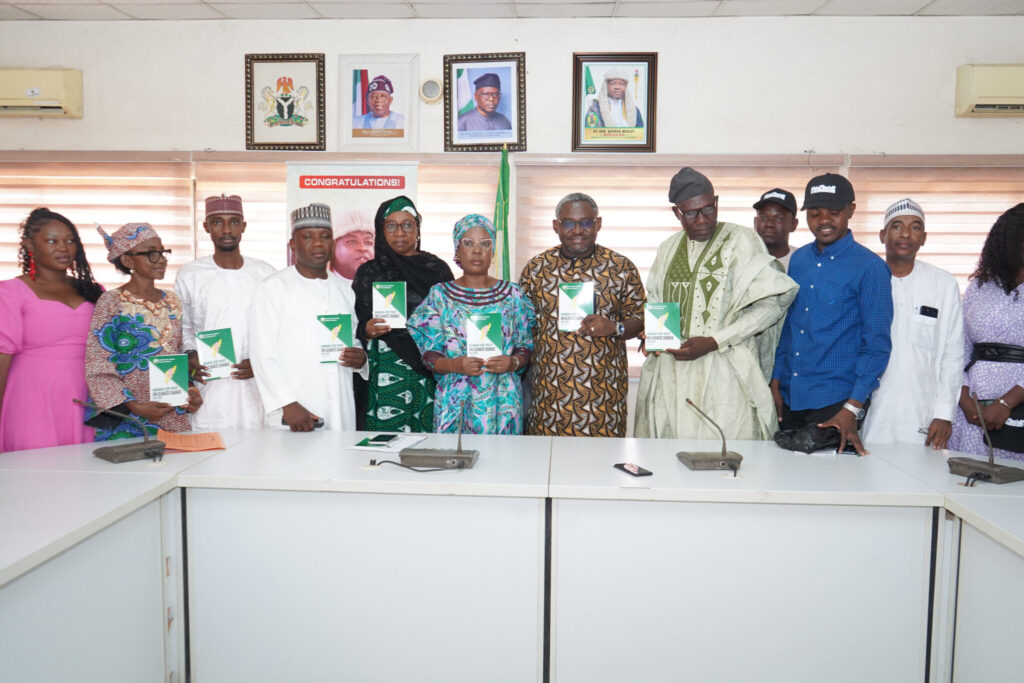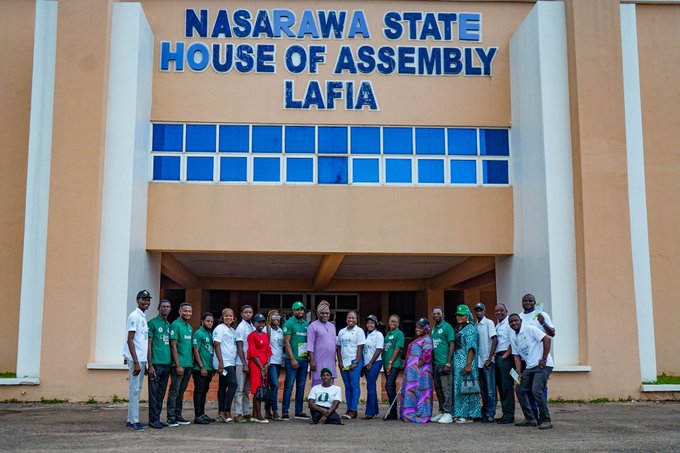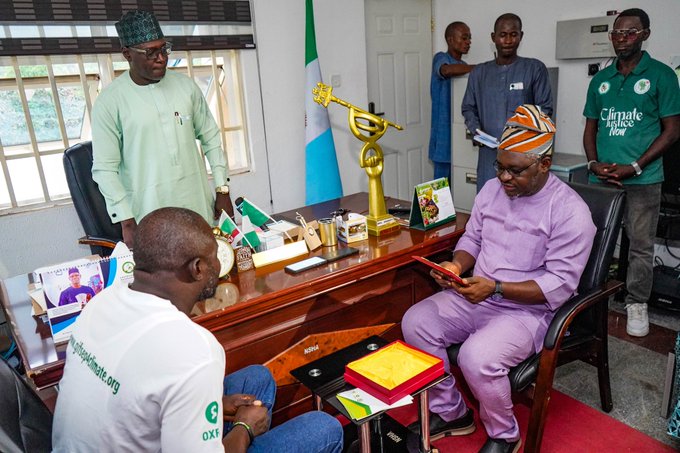African Activists for Climate Justice
In a significant stride towards addressing climate change, the Global Initiative for Food Security and Ecosystem Preservation (GIFSEP), supported by the African Activists for Climate Justice (AACJ) program, has taken crucial steps to influence climate policy at the subnational level. On July 11, 2024, GIFSEP presented the draft Adamawa State Policy on Climate Change (ADASPOCC) to the Adamawa State House of Assembly, received by the House Committee Chair on Environment, Hon. Kate Raymond. Subsequently, on July 17, 2024, a draft climate change policy bill was presented to the Nasarawa State House of Assembly, received by the House Chair on Environment, Hon. Mohammed Omadefu, who was also honored with the Climate Champion Award for his contributions to climate justice.


The Global Initiative for Food Security and Ecosystem Preservation (GIFSEP), led by Executive Director Dr. David Michael, presented the climate change policy document to the Nasarawa State House of Assembly for legislation. The presentation, attended by climate change advocate NGOs, Civil Society Organisations, and persons with disabilities, was received by Hon. Muhammed Omadefu, Chairman of the House Committee on Environment. Dr. Michael highlighted that GIFSEP, through the African Activists for Climate Justice (AACJ) project supported by Oxfam in Nigeria, has been implementing resilience-building activities in Nasarawa State for the past three years. Emphasizing the state’s significant climate change challenges, he noted the development of the policy in collaboration with the state Ministry of Environment and Natural Resources. Despite presenting the policy to the Ministry two years ago, no significant progress was made, prompting the push for legislative action. Hon. Omadefu assured full support for legislating the climate change policy, reflecting the Assembly’s commitment to mitigating climate impacts under Speaker Danladi Jatau’s leadership. Mr. Emmanuel Envoh-Okolo, State Coordinator of the Nasarawa State Network on Environment and Climate Justice (NASNECJ), called for robust collaboration to ensure the policy’s passage. The visit concluded with Hon. Omadefu receiving the Climate Change Champion Award for his contributions to climate justice.


In Adamawa State, the presentation of the ADASPOCC draft policy marks a crucial step in empowering local governments to address environmental challenges. The Majority Leader of the Assembly and House Chairperson of the Committee on Environment, Kate Raymond, expressed the state government’s commitment to domesticating the climate policy. This dedication reflects the broader vision of ensuring that climate policies are not only formulated at the federal level but are also implemented where they are most needed.
Dr. Michael David, Executive Director of GIFSEP, emphasized the importance of subnational frameworks in addressing climate change. “Most policies are done at the federal level and most are not domesticated by states, and this is where the population really exists. So, what we have done is work with members of the Adamawa State House of Assembly to support them in developing a climate change policy for the state. Today we officially present the policy that we helped them to develop,” Dr. David stated.
The enactment of climate change policies in states like Nasarawa and Adamawa was crucial for several reasons. These states are on the frontline of climate impact, and tailored policies ensure that specific local challenges are addressed effectively. These policies provide a structured framework for implementing climate resilience and adaptation measures. Local policies promote community engagement and accountability, ensuring that citizens are part of the climate action process. They pave the way for sustainable development practices that protect the environment while fostering economic growth.
The developments in Nasarawa and Adamawa States signified a collaborative effort between civil society and government to ensure the effective implementation of climate policies. These actions reflected the commitment to creating a sustainable and resilient future, aligning with the objectives of the African Climate Change and Environmental Justice (AACJ) program’s policy influencing pathway. As these states moved towards adopting and implementing their respective climate change policies, continuous monitoring and accountability from civil societies and citizens remained crucial. The journey towards climate justice and sustainability required unwavering political will, community involvement, and robust frameworks at all levels of governance. Through these collaborative efforts, Nigeria set a precedent for other regions, showcasing the impact of dedicated climate action at the subnational level.